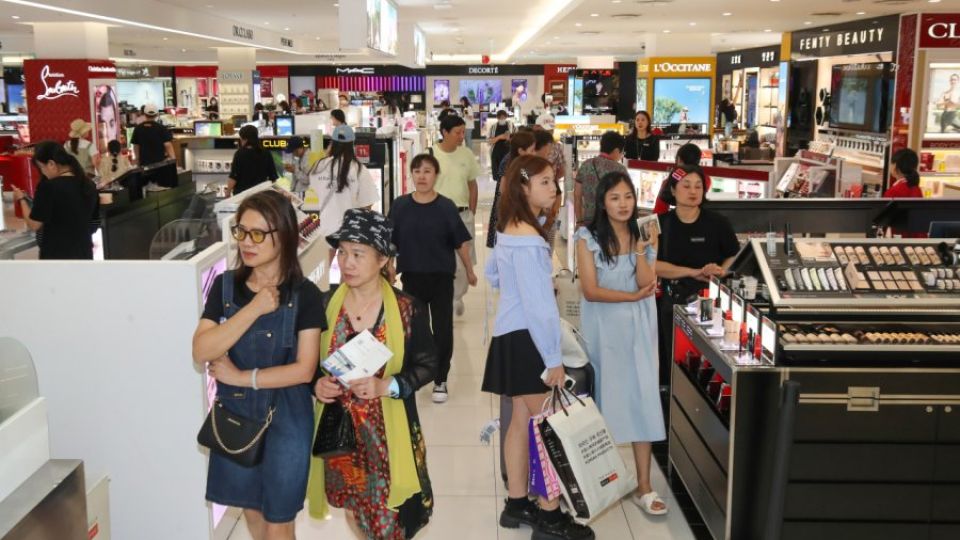September 5, 2023
SEOUL – South Korea’s Ministry of Culture, Sports and Tourism announced Monday it will go all-out to draw back Chinese travelers to capitalize on China’s recent lifting of its ban on group travel to dozens of countries, through measures such as exempting Chinese tourists from visa issuance fees and fostering the development of premium tourism packages.
“We will aim to triple the number of Chinese tourists recorded in the first half of 2023 (500,000) in the second half of 2023, and ultimately draw in an annual total of 2 million Chinese tourists,” said a ministry official via a press release.
“Such a boost in the number of tourists is estimated to result in 0.16 percent growth in the nation’s gross domestic product,” he added.
In order to achieve this goal, the ministry said, fees for issuing electronic visas for Chinese group tourists, which currently cost 18,000 won ($13), will be exempted until the end of the year to attract Chinese travelers.
The Tourism Ministry added the number of flights flying to and from Korea and China will be increased, and to facilitate maritime travel, berths or beds will also be designated on cruise ships traveling to and from the two countries in a speedy fashion.
Immediate tax refund policy systems will be implemented at 200 additional locations across the nation, including K-beauty outlets and pharmacies located in major tourist areas. The Tourism Ministry added that starting in 2024, it will expand the tax refund policy to have the minimum standard amount that can be refunded at duty-free shops reduced from 30,000 won to 15,000 won. The upper limit on the amount of taxes that can immediately be refunded will also be raised from 500,000 won to 700,000 won.
The Tourism Ministry said it also plans to foster the development of premium tourism packages such as medical tourism packages and meetings, incentives, conferences and exhibitions (MICE) tourism packages.
Medical tourism packages that combine cosmetic surgical and nonsurgical procedures for younger tourists and medical checkups for older tourists are scheduled to be aggressively advertised to Chinese travelers. The Tourism Ministry added that for large-scale MICE tourism packages, Korea Tourism Organization officials and other government officials will be deployed to offer consultations regarding visa applications.
Specialized tourism packages centering on experiencing K-culture, K-food and K-beauty will also be promoted.
Starting in September, tourists from China will be given the opportunity to apply for the “K-Culture Bucket List Challenge” when purchasing airplane tickets to Korea. Through a random drawing, 10,000 Chinese tourists will win opportunities to participate in esports with professional gamers, go on a picnic along the Han River or attend a K-league baseball game.
The Tourism Ministry added it will ramp up efforts to increase the overall quality of Korea’s tourism products.
Starting in September, the government will crack down on low-cost tourism packages involving the use of what it calls illegal accommodations and unqualified tourism interpreter guides. Also, festivals that have generated controversy due to exorbitant fees will not be supported or certified by the Tourism Ministry.
Duty-free shops will be mandated to report customs and other fees as well as sales information to the Tourism Ministry, in a bid to prevent these shops from paying excessive fees to travel agencies to guarantee customers, which leads to cutthroat competition among travel agencies and forced shopping practices.
“The healthy and vigorous consumption activities of Chinese tourists can be a strong driving force to revitalize the domestic (economy). With K-culture’s popularity having grown globally, we will completely upgrade K-tourism for Chinese travelers and establish order in the tourism market,” said Jang Mi-ran, second vice minister of culture, sports and tourism.
The measures come after China lifted the ban on group tours to South Korea after six years on Aug. 10, following its decision to abandon its “zero-COVID” policy.


